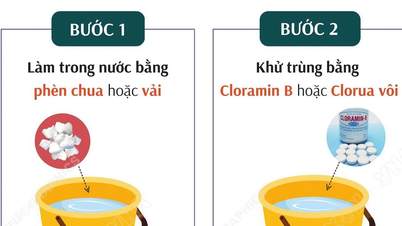I often get nosebleeds, especially in the dry season. Is it dangerous? What foods should I supplement to prevent it? (Van Anh, Dong Nai )
Reply:
Nosebleeds are bleeding from one or both nostrils. The bleeding usually starts in one nostril, but can spread rapidly to the other nostril. In some cases, the bleeding may come out of the front nostril or down the back of the throat.
Nosebleeds occur at all ages, but are most common in children aged 2-10 and adults aged 50-80. The cause is often related to hot, dry climate, lack of humidity, and cold season. At this time, patients are susceptible to upper respiratory tract infections that cause blood vessels to rupture, causing nosebleeds. Other causes may include nasal trauma, sinusitis, allergic rhinitis, sinus tumors, and sinus structural abnormalities.
More dangerous nosebleeds can be a symptom of some systemic diseases such as blood clotting disorders, sinus cancer, leukemia...
When nosebleeds are caused by damage to small blood vessels, you should supplement your diet with foods rich in vitamin C, which is essential for the growth and regeneration of body tissues.
Cherries boost immunity, help prevent infections, and help you sleep better. Parents and children can eat fresh cherries or make smoothies or mix them with ice cream.
Cucumbers contain 95% water, are rich in vitamin C and potassium, and are good for the digestive tract. Drinking cucumber smoothies or eating cucumbers helps replenish water and maintain the necessary moisture for the body.

Vitamin C found in tangerines and oranges helps strengthen the immune system. Photo: Freepik
Red bell peppers are low in sugar and have a naturally sweet taste that is good for your health. One red bell pepper can meet your daily vitamin C needs. This fruit can be eaten raw or stir-fried with beef or made into salads. During the cooking process, a significant amount of vitamin C is lost, so it should be consumed immediately after cooking or best eaten raw.
Oranges are rich in vitamin C, fiber, folate, and antioxidants. One orange contains 60% of the vitamin C your body needs daily. Oranges are naturally sweet and are loved by many children and adults. You should eat oranges instead of drinking orange juice to get enough vitamins and fiber.
Carrots are rich in beta-carotene, fiber, magnesium, and vitamin C. Carrots help boost the immune system, promote healthy eyes, and help control blood sugar levels.
Doctor Tran Thi Tra Phuong
Department of Nutrition, Nutrihome Nutrition Clinic System
| Readers ask questions about ear, nose and throat diseases here for doctors to answer |
Source link





![[Photo] Hanoi morning of October 1: Prolonged flooding, people wade to work](https://vphoto.vietnam.vn/thumb/1200x675/vietnam/resource/IMAGE/2025/10/1/189be28938e3493fa26b2938efa2059e)






























![[Photo] President Luong Cuong receives President of the Cuban National Assembly Esteban Lazo Hernandez](https://vphoto.vietnam.vn/thumb/1200x675/vietnam/resource/IMAGE/2025/9/30/4d38932911c24f6ea1936252bd5427fa)
![[Photo] Panorama of the cable-stayed bridge, the final bottleneck of the Ben Luc-Long Thanh expressway](https://vphoto.vietnam.vn/thumb/1200x675/vietnam/resource/IMAGE/2025/9/30/391fdf21025541d6b2f092e49a17243f)




























































Comment (0)